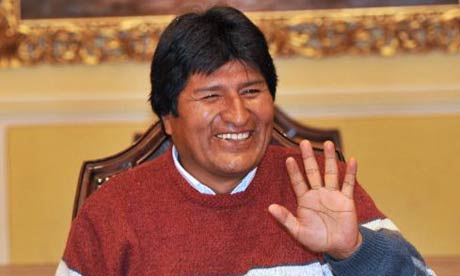latin america
Tenue au Venezuela, à Caracas, du 8 au 11 octobre 2008 en présence d’experts et de chercheurs en provenance d'Argentine, d'Australie, de Belgique, du Canada, du Chili, de Chine, de Corée du Sud, de Cuba, d’Egypte, d'Équateur, d'Espagne, des États-Unis, des Philippines, de France, d'Angleterre, du Mexique, du Pérou, d'Uruguay et du Vénézuéla, la Conférence Internationale d'Économie Politique « Réponses du Sud à la Crise Économique Mondiale » a ouvert un large débat sur l'actualité économique et financière de l'économie mondiale, les nouvelles perspectives et les défis que doivent relever les gouvernements et les peuples du Sud.
Debemos aprender las lecciones del siglo XX para aplicarlas al comienzo del siglo XXI
Eric Toussaint
[Click HERE for the English translation]
By Eric Toussaint, translated by Federico Fuentes for Links International Journal of Socialist Renewal
October 11, 2008 -- Academics and researchers from Argentina, Australia, Belgium, Canada, Chile, China, Cuba, Ecuador, France, Mexico, Peru, Phillipines, South Korea, Spain, United Kingdom, United States, Uruguay and Venezuela participated in the International Political Economy Conference: Responses from the South to the Global Economic Crisis, held in Caracas October 8-11, 2008. The conference stimulated a wide-ranging debate on the current economic and financial health of the global economy, the new perspectives and the challenges to the governments and peoples of the South posed by the international financial crisis.
The meeting concluded that the situation has worsened in the last few weeks. It has progressed rapidly from being a series of crises in the financial markets of countries in the centre and has turned into an extremely serious international crisis. This means that countries in the South are in a very difficult situation.
The crisis threatens the real economy and, if energetic and effective actions are not taken immediately, all peoples in the world could be drastically punished; especially the least-protected and most-neglected sectors.
Evo Morales: Ten commandments to save the planet

By Evo Morales Ayma, president of the Republic of Bolivia
Message to the Continental Gathering of Solidarity with Bolivia in Guatemala CityOctober 9, 2008 -- Sisters and brothers, on behalf of the Bolivian people, I greet the social movements of this continent present in this act of continental solidarity with Bolivia.
We have just suffered the violence of the oligarchy, whose most brutal expression was the massacre in Panda, a deed that teaches us that an attempt at power based on money and weapons in order to oppress the people is not sustainable. It is easily knocked down, if it is not based on a program and the consciousness of the people.
We see that the re-founding of Bolivia affects the underhanded interests of a few families of large landholders, who reject as an aggression the measures enacted to favour the people such as a more balanced distribution of the resources of natural gas for our grandfathers and grandmothers, as well as the distribution of lands, the campaigns for health and literacy, and others.
Refounding Bolivia: Morales calls for vote on a new democratic constitution

at the sacred place of Tiwanaku.
Photo: AFP
By Raul Burbano
October 13, 2008 -- Bolivian President Evo Morales has called for a national referendum on the country’s new draft constitution on December 7. The demand of the Bolivian people for a new and socially, politically and economically inclusive constitution is at the heart of the present political upheaval in that country.
Right-wing forces representing the country’s traditional ruling oligarchy have launched a secessionist movement to balkanise the country, in an attempt to block the constitutional referendum. They have organised murderous fascist gangs to terrorise the population.
They are backed by the US government, whose ambassador, Philip Goldberg, has recently been expelled from Bolivia for his support of the opposition and openly admitted interference in Bolivian political life.
On the other side the vast majority of the Bolivians, more than 67% of whom just voted support President Evo Morales in a recall referendum.
Statement from the National Assembly of People’s Power
Capitalist versus socialist state intervention in the economy
By Martin Saatdjian
Peru: Hugo Blanco -- My arrest

By Hugo Blanco
Racism, domination and revolution in Bolivia
By Adolfo Gilly
Human Rights Watch report on Venezuela: An echo of US propaganda
Statement by the Australia-Venezuela Solidarity Network